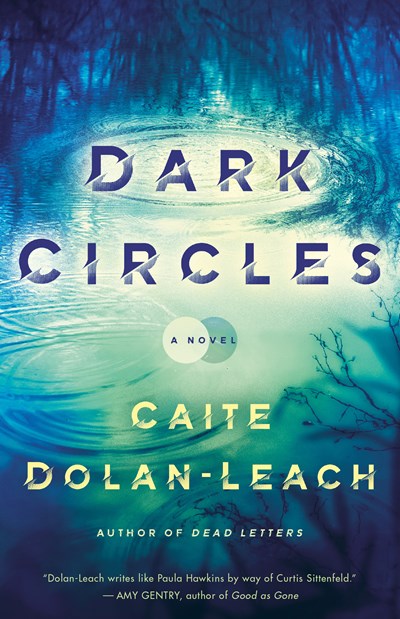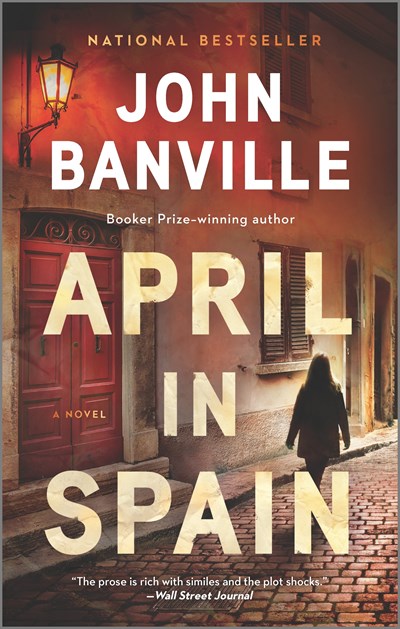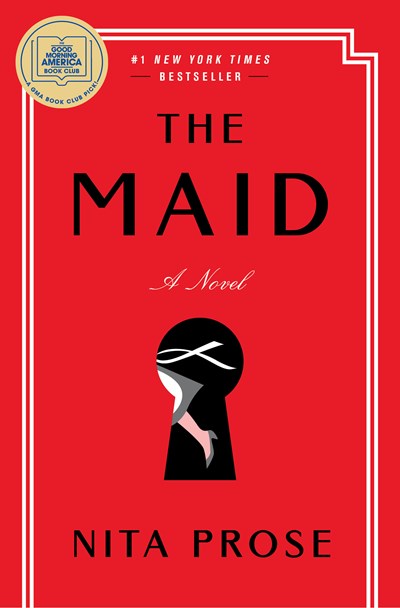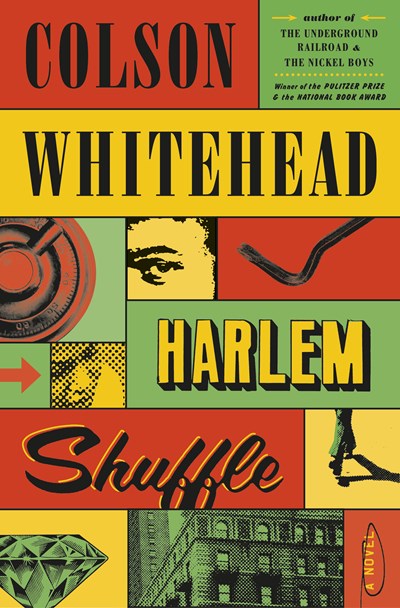A foray into the wacky world of wellness led by my favorite character of the year, Olivia (Liv) Reed. Thirty-something Liv, an actor starring in a long-running TV series, is a bit down on her luck. The paparazzi caught her making out with a man who is not her boyfriend, and photos of her ensuing meltdown on the streets of Manhattan were published everywhere. Liv’s also a bit too hands-on with the booze and pills, and her relationship with her one friend, also her publicist/handler, is on the ropes. Begrudgingly, she agrees to check in to the House of Light—don’t call it rehab!—in upstate New York, which bills itself as a spiritual center. But before you can say namaste, the body of a young woman turns up in the adjoining lake—she had ties to House of Light—and when Liv learns she’s just the latest in a series of what are being called suicides, she’s off and running. Smartly, Liv uses her celebrityhood to start a podcast that becomes wildly successful and allows her to present the investigation in nearly real time. Comparisons to Nine Perfect Strangers, the Liane Moriarty book/Hulu series starring Nicole Kidman, are inevitable—and should be helpful in promoting this book—but Dark Circles is even better. After all, it’s got the sarcastic, sophisticated, completely credible, and even sometimes vulnerable voice of Liv Reed.
Literary
We have cozies. We have thrillers. But what about mensch mysteries? Because Amos Parisman, AKA the oldest living Jewish PI in Los Angeles, is the definition of a real mensch. In this third book in the series, Amos comes out of retirement—a retirement he doesn’t want—to help the police investigate the murder of a homeless woman, whose corpse he discovers in the bottom of a garbage bin. Soon enough, that murder is followed by others, until it becomes clear that Amos and his sidekick, Omar, have a serial killer on their hands. While the search for the killer provides the underpinning of the novel, there’s always a lot more happening in an Amos Parisman mystery than just the crimes. Here, Amos does a lot of research into the homeless—so often invisible—and the discomfort they provoke in much of society. Also prominent in this volume is Amos’s poignant relationship with his wife, Loretta, who’s now living in a nursing home as she has advanced dementia, and his growing relationship with Mara, whose husband also lives in the home. A wonderful voice, great storytelling, and a completely unique character.
When 15-year-old Oscar Dreyer-Hoff goes missing on his way home from school, the Copenhagen police assume he’s yet another teenager who’s run off and is likely at a friend’s house. But his well-connected, affluent family thinks otherwise. They’re art dealers with a somewhat shady past and a history of receiving threats. In fact, they receive an ambiguous message the day after young Dreyer-Hoff disappears. Time to bring in detectives Jeppe Kørner and Anette Werner, who pursue Oscar’s disappearance as though it were a kidnapping. Kørner and Werner encounter a wonderful range of characters—from pouty, insolent teens to engineers in a recycling plant and the caretaker of an island in the harbor—and we learn about Copenhagen in the process. Engberg is a genius at balance, going deep into the lives of Kørner and Werner, as well as some of the suspects, while never forgetting that this is a murder mystery, and the clock is ticking. The third in a series that just keeps getting better, this book also succeeds as a standalone. For wherever Nordic noir is appreciated.
John Banville invites us into the inner lives of Irish people and, through their loves and struggles, creates a composite view of modern Ireland. This eighth in the series named for retired medical examiner Quirke sees him reluctantly vacationing in Spain with his wife, Evelyn, a psychiatrist whose quiet love for Quirke is a highlight of the book. When an injured Quirke visits an ER, the Irish doctor who treats him is strangely familiar and later, at a thank-you meal she obviously loathes attending, behaves bizarrely. Back in Ireland, Quirke’s daughter, Phoebe, will frustrate readers through her relationship with superior-acting, controlling Paul. When Phoebe joins Quirke to tackle the mystery surrounding the Irish doctor, she sidesteps Paul and his aloofness only to face something much more sinister (warning: sexual abuse is involved though not graphically described). Love and fear are wonderfully juxtaposed here, and those who enjoy reading the former should try Irish author Donal Ryan’s The Spinning Heart. Fans of the more dangerous elements should be steered toward the Sean Duffy novels by Northern Ireland’s Adrian McKinty.
The latest by the enormously successful author of The Girl on the Train and Into the Water portrays destruction continuing after long-ago catastrophes. On one side we see successful (and smarmy) London author Theo and his family reeling after an accident that leaves Theo longing for someone to blame. Nearby geographically, but worlds away in life choices, lives Laura, the victim of a hit-and-run that has left her physically and mentally unstable, and who was, shall we say, known to a young man who has been found stabbed to death. As in The Girl on the Train and the many unreliable-narrator novels it inspired, readers will be left wondering until the very end whom to trust and what exactly happened on one fateful day. Hawkins is a top-notch storyteller, and her vividly drawn characters will evoke strong emotions in readers. Enjoyable too are the author’s frequent wry nods towards today’s trends in fiction and the difficulty in following up on a blockbuster novel. As well as Hawkins’ many fans, this is one for Kate Atkinson’s readers and all who enjoy a disparate cast of characters slowly revealing their connections.
Molly Gray struggles to decipher social cues. Her speech is formal and old-fashioned. She’s obsessed with cleaning—a real advantage in her job as a maid in a grand old hotel. Gran, who always helped her navigate the world, recently died, leaving 25-year-old Molly an orphan. Readers may be quick to diagnose Molly as being on the autism spectrum, but Prose wisely avoids such language, forcing us to make sense of Molly on her own terms. Then comes the day when the maid goes to clean the room of the wealthy and loathsome Charles Black, only to find him dead, likely the victim of murder. Molly’s world is turned upside down as she finds herself the lead suspect. Suddenly, she has to do the unthinkable: reach out to others for help in saving herself. The Maid is a lovely, uplifting exploration of friendship and the power of difference. As Gran would say, “We are the same in different ways.”
With two Pulitzer prizes for fiction under his belt, it’s not surprising when Colson Whitehead writes a character for the ages, but beleaguered everyman Ray Carney is a standout even for Whitehead. “Living taught you that you didn’t have to live the way you’d been taught to live,” says Carney, a young Black man who’s barely making ends meet in his Harlem furniture store while dreaming of more. The pressure’s on, too: his parents-in-law think their daughter could have done better, and Carney longs to be admitted to his father in law’s “paper-bag club,” but with skin darker than said brown bag, he’s not allowed. Loyalty to his own family leads Ray to help his cousin Freddy; always sketchy, Freddy convinces Carney to help him in a can’t-go-wrong robbery scheme that, yes, goes wrong, starting Carney on a heartbreaking trajectory. This character’s relentless efforts to make good in a world that expects and revels in his failure will remind readers of Jean Valjean in Les Miserables. Shadowing Colson’s terrific crime tale are the final throes of Jim Crow and the claw-your-way-up culture of early 1960s Harlem, but most of all, Carney will grab readers’ hearts and stay with them.







